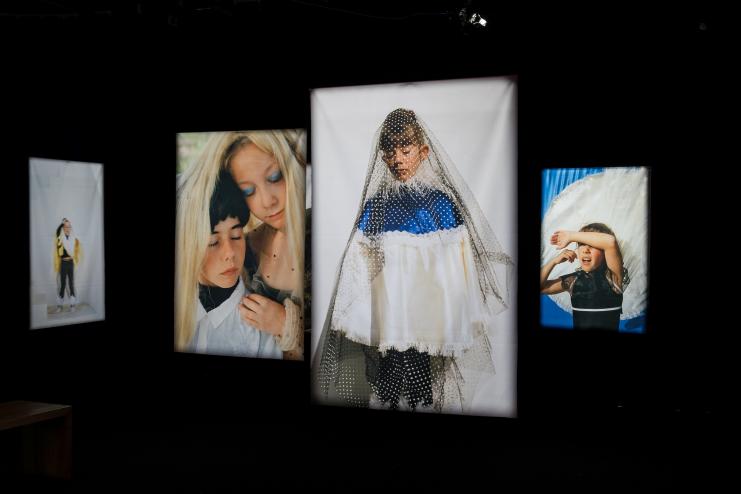Photography / Video

The Photography/Video department offers students professional training in each of these media. It aims to create a dialogue between the two and to explore original approaches that go beyond the mere combination of the two practices.
- Theory of video editing
- Editing photos
- An exhibition curator guides the open houses.
- The first one formalizes the outline of the project (intentions, technical means, deadlines);
- The second aims to display the project’s progress a few weeks before students defend their thesis.
Teaching
Differentiating the issues raised by photography and those raised by video does not exclude porosity between the two media. Still image-moving image, the richness of the department’s curriculum draws on many issues that define the current processing of images. For instance, fiction has a place in any documentary project and the concrete world is considered in any approach to images. The technological evolution related to creating and broadcasting images, whether still or moving, are always considered by our students who link them to a political economy of our environments, perceptions, storytelling and of representation.
Our graduates’ careers attest to the development of unexpected, new and unique practices and encourage the perpetual redefinition of the department’s courses. Whether it’s cinema (fiction movies, documentaries or experimental films), photography (both film and digital), installation, volume, 3D, new technologies and artificial intelligence..… All of the above stand apart from installations and projection (without excluding them either) because of their coexistence.
Bachelor’s Degree
Year 2 is dedicated to mastering technical tools, implementing projects and developing the students’ critical eye as to their work.
The curriculum consists of photography, video and sound courses, of technical training in all three fields and of theoretical courses—history of photography and, in the second semester, history and theory of art and cinema. It also includes occasional workshops in both semesters: black and white printing, shooting on set and studio camerawork.
The aim of the curriculum is for students to independently create unique films and photographic projects.
The knowledge students have acquired is deepened in year 3 thanks to various personal or mandatory projects carried out over longer periods of time and to the implementation of appropriate methods. Several courses complete the curriculum:
Theory also has its place in the curriculum. For instance, a course is dedicated to the exploration of contemporary ways of writing in cinema, which reinvent or question the following predefined categories: fiction, documentary, essay.
In the second semester, the research methodology classes prepare the students for their thesis and for the Master’s degree.
At the end of the year, they pass exams to get their degree, which provide them the opportunity to put their theoretical and practical skills into practice. They are especially assessed on a written essay and on various displays of their work. Those elements allow the jury to retrospectively understand their work evolution throughout the course.
Finally, interaction between students of all years of study are encouraged. Second- and third-year students collaborate on various projects and are regularly involved in the follow-up and creation of the fifth-year Grands Projets.
Master’s Degree
Although the year 4 curriculum is less structured than that of the previous years, it still enables to shape the department’s teaching axes.
Video and photography are still its backbone. Thus, video projects are developed in the first semester and perfected throughout the rest of the year by a variety of contributions (directing actors, self-directed workshops, etc.).
As for photography, the first two semesters enable students to design projects before materializing them, whether in the context of editing or of exhibitions.
Those practices are deepened by courses on installations and by complementary technical training linked to the creation of various projects.
The completion of the thesis in the second semester is a key moment of the Master’s degree. The thesis is a research work as much as an exploration of forms. Grand Projets are more and more often based on the thesis.
Year 5 is entirely dedicated to developing and carrying out the Grand Projet. Students work at their own pace and are supervised by several teachers. The aim is to define the issues raised by their proposals, the forms involved and the most appropriate tools.
The production is usually made in the middle of the year, before the post-production process takes place at the School’s facilities. The teachers support the students’ work every step of the way. The workshop managers and the outside contributors also provide technical help (writing, editing..…).
At the end of each semester, presentations are made before all the teachers and students of the Photo/Video department:
While it is a critical exercise for 2nd, 3rd and 4th year students, it enables those who will present their Grand Projet to test their working hypotheses before defending their project before the jury.
Enseignant·es
| Nom | Fonction |
|---|
Mémoires
| Étudiant.e.s | Titre du Projet | Année |
|---|